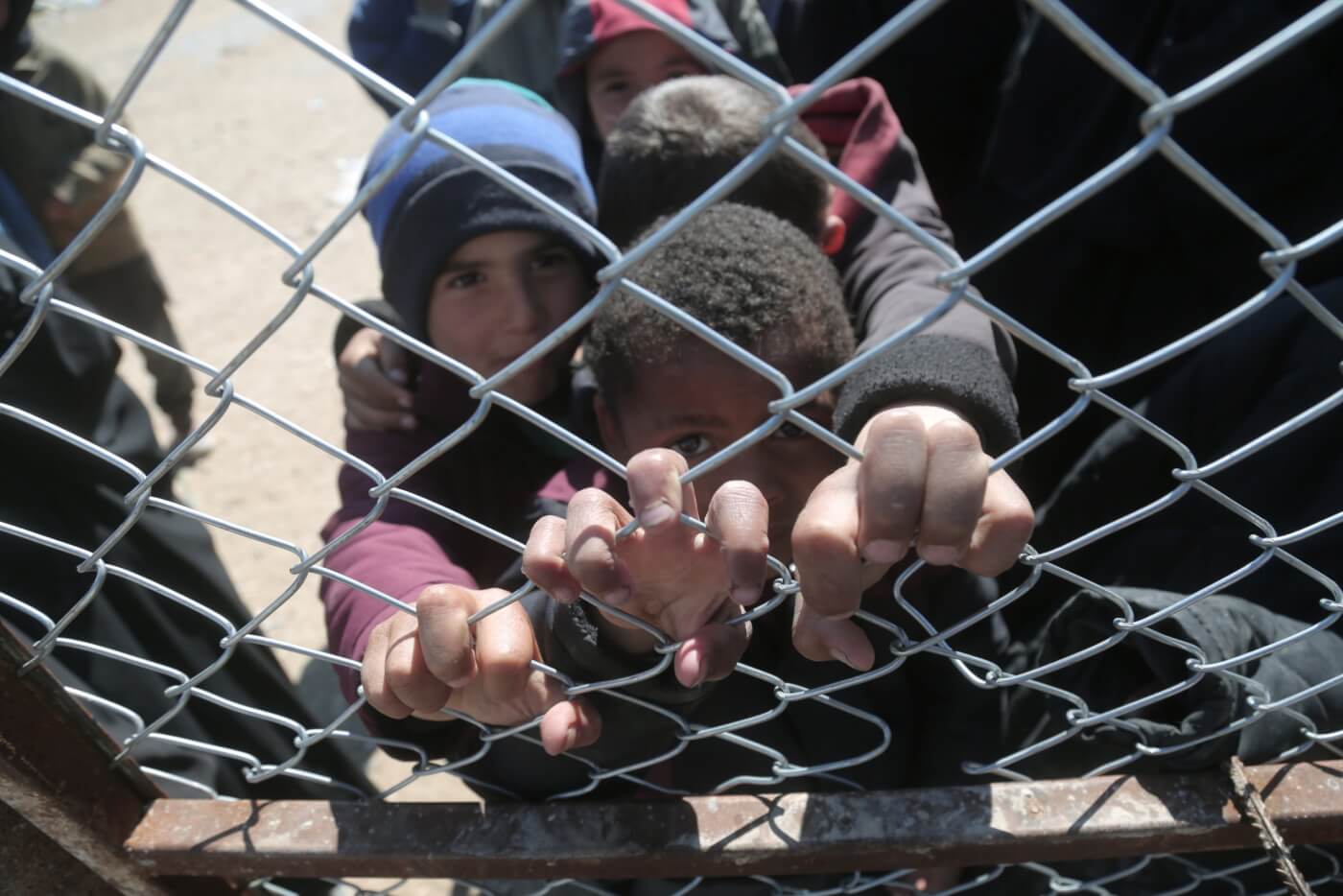In less than one week, eight children under the age of five have died in northeastern Syria’s al-Hol refugee camp, according to UNICEF Executive Director Henrietta Fore.
Who said in her statement:
“The deaths occurred between 6-10 August. Four of them were caused by malnutrition-related complications. The others were due to dehydration from diarrhoea, heart failure, internal bleeding and hypoglycaemia.”
The al-Hol camp, the largest camp in northeastern Syria, currently contains around 75,000 individuals displaced from the conflict with the so-called Islamic State (IS) group. The camp predominantly houses women and children with various affiliations to IS.
However, a July 2020 study conducted by Vera Mironova states that:
“[While] al-Hol camp is often portrayed as either a hotbed of radical fanatics dedicated to ISIS or home to a bunch of poor housewives who were just following their husbands, the reality is much more complicated”
Mironova points to the high numbers of residents who feel they were used by IS leadership to realise it’s political goals, coupled with the low levels of IS support demonstrated by these women, as evidence that the media’s portrayal of the camp as a “hotbed of radical fanatics” is misguided. According to Mironova, only around 20-30 percent of residents hold, what could be described as, ‘radical’ views.
Speaking to IOHR, Mironova said:
“I was surprised by how many of them are not supporting the group…[online] it feels like everyone is supporting ISIS and they’re all this hardcore group of die hard ISIS supporters but infact that’s not true. There is maybe a small group of those females left in the camp but the majority either don’t care or don’t like the group anymore or supported them for strategic reasons or social pressure reasons”
Watch IOHR interview Vera Mironova about her research in the Syrian refugee camps:
Dragging feet placing children at risk
The al-Hol camp houses the largest number of foreign nationals who travelled abroad to join IS, many of which are European. It is estimated that around 7,000 individuals from countries other than Syria and Iraq currently reside in al-Hol.
Since the fall of IS, European governments have mostly pushed back against repatriating their citizens, citing the threat they could pose to national security should they be returned. In many countries, the portrayal of these women and children by the media has also led to significant opposition to repatriation among the wider public.
However, the lack of action is keeping these children in dangerous conditions and ultimately risking their lives. As Henrietta Fore says:
“Any child’s death is tragic. It is even more so when the death could have been averted…Nearly 40,000 children from more than 60 countries continue to languish in Al Hol. They lack access to basic services and have to contend with the sweltering summer heat and the trauma of violence and displacement.”
Academic research conducted by Neil J. Saad, published in the British Medical Journal in June 2020 found that: “the current situation for those living in the camp is untenable due to abhorrent living conditions and restriction on medical care or access to care.”
Saad added that:
“Foreign governments should not forget the plight of their own nationals in the camp.”
In November 2019, the UK government repatriated three children from Syrian refugee camps. The children were all orphans of IS parents and are the only repatriations of their kind conducted by the UK government to date. Speaking at the time, UK Foreign Secretary Dominic Raab said:
“Innocent, orphaned children should never have been subjected to the horrors of war…We have facilitated their return home, because it was the right thing to do.”
However, the UK government has continually been criticised by human rights defenders for not doing enough to repatriate vulnerable women and children from these camps. In many cases, the government has actively prevented hopes of return by revoking the citizenship of those who travelled to join IS.
In the latest twist of the high-profile case of Shamima Begum, the UK Court of Appeal ruled that Ms. Begum can return to the UK to contest the government’s decision to rescind her British citizenship. The government is currently challenging this ruling.
Watch IOHR interview Orlaith Minogue, Conflict and Humanitarian Advocacy Adviser for Save the Children, on the urgent need to repatriate foreign children from the Syrian refugee camps:
COVID-19: ‘making a critical situation even worse’
While humanitarian agencies such as the U.N. continue to provide essential relief within the al-Hol camp, the current pandemic is hindering the ability of such groups to provide even the most basic of services.
Speaking to VOA, Spokesman for the U.N. Office for the Coordination of Humanitarian Affairs, Jens Laerke said:
“The tragic deaths [of these children] have occurred at a time when health services at the camp are under increased pressure due to the COVID-19 pandemic,” he said. “Since the beginning of August, five health workers at Al Hol camp have tested positive for COVID-19, leading to the temporary closure of one field hospital and disruptions to another, amid growing shortages of Protective Personal Equipment.”
Ms. Fore also spoke about the challenges presented by COVID-19, saying:
“COVID-19, with the resulting movement restrictions and quarantine measures, is making a critical situation even worse. Recent confirmed infections among camp workers have led to a pause in some health and education services, and to a temporary reduction in the number of workers operating in the camp. It is critical that the resumption of health and nutrition services is prioritized and that emergency care options are in place.”
————————————————————————————————————————————–
EVENT
You can RSVP to IOHR’s upcoming webinar discussing the impact of the media in framing the discussion around IS returnees HERE.
————————————————————————————————————————————–

